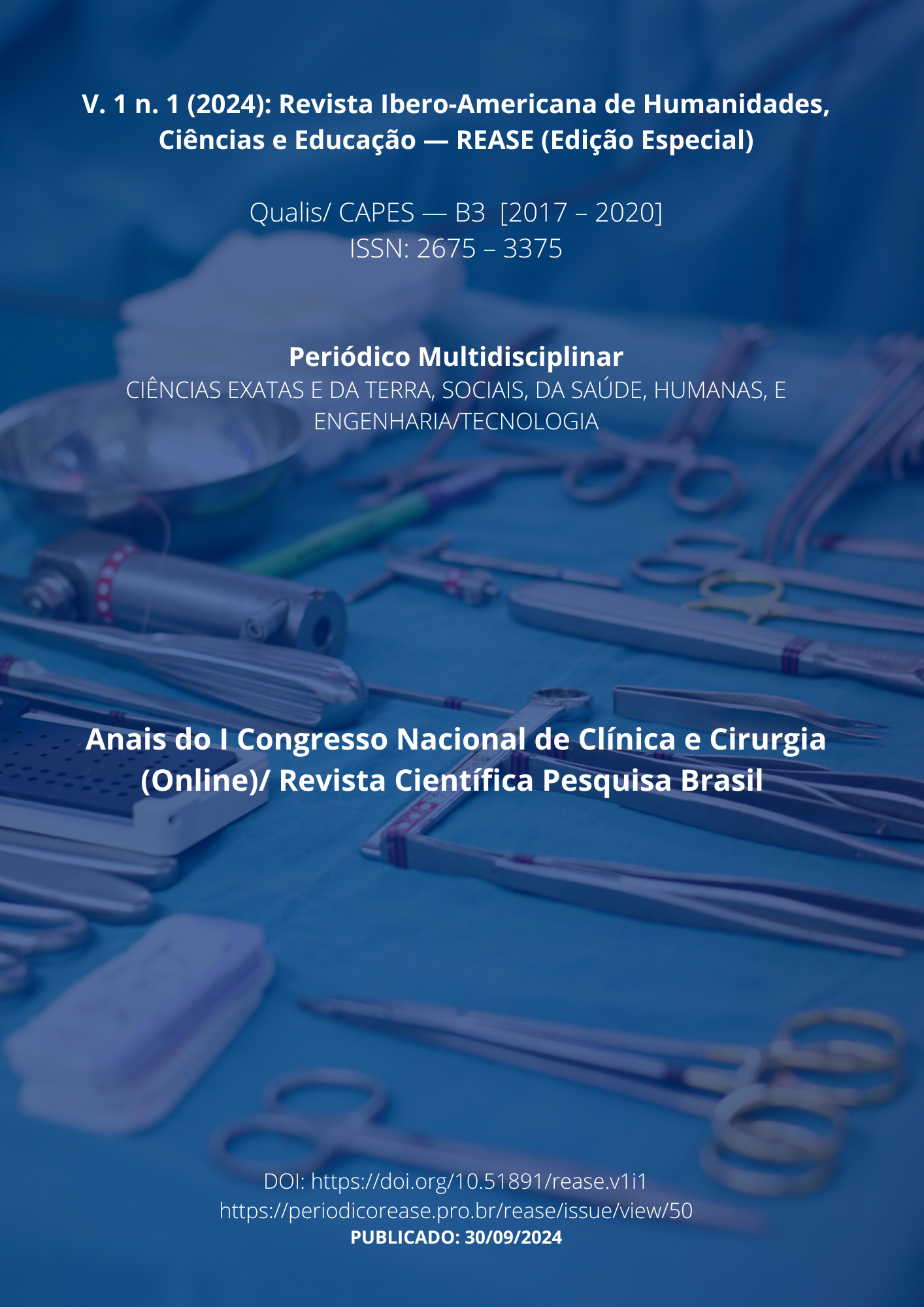MINIMALLY INVASIVE CORRECTION OF ESOPHAGEAL ATRESIA IN NEONATES: FUNCTIONAL RESULTS AND POSTOPERATIVE COMPLICATIONS
DOI:
https://doi.org/10.51891/rease.v1i01.17637Keywords:
Esophageal atresia. Minimally invasive surgery. Neonates.Abstract
Introduction: Esophageal atresia is a congenital malformation that requires early surgical intervention, often performed using open techniques. Recently, minimally invasive correction has emerged as a promising approach, providing lower morbidity and better aesthetic results. However, the functional efficacy and complications of this technique are still under study. Objective: To evaluate the functional results and complications associated with minimally invasive correction of esophageal atresia in neonates, comparing it to traditional open techniques. Methodology: Integrative review of the literature on esophageal atresia surgery in neonates. Studies available in full in Portuguese from the last ten years were included. Repeated studies between databases were excluded. Results and Discussion: The data analyzed show that minimally invasive correction had a high success rate in reconstructing esophageal transit with low rates of severe complications. The mean operative time was slightly longer compared with the open approach, but neonates undergoing the minimally invasive technique had a lower incidence of surgical wound infections and faster recovery. Among the most frequent complications, anastomotic stenosis and tracheoesophageal fistula stood out, with rates similar to those observed in open surgeries. Functional analysis revealed that swallowing was satisfactory in most patients after the recovery period. Final Considerations: Minimally invasive correction of esophageal atresia in neonates is a viable and safe alternative, with benefits in terms of recovery and postoperative complications. Despite the longer surgical time, the functional results were shown to be equivalent to open techniques, highlighting its potential as the procedure of choice in specialized centers. Long-term studies are needed to evaluate esophageal functionality and the impact on patients' quality of life.
Downloads
Downloads
Published
How to Cite
Issue
Section
License
Atribuição CC BY

